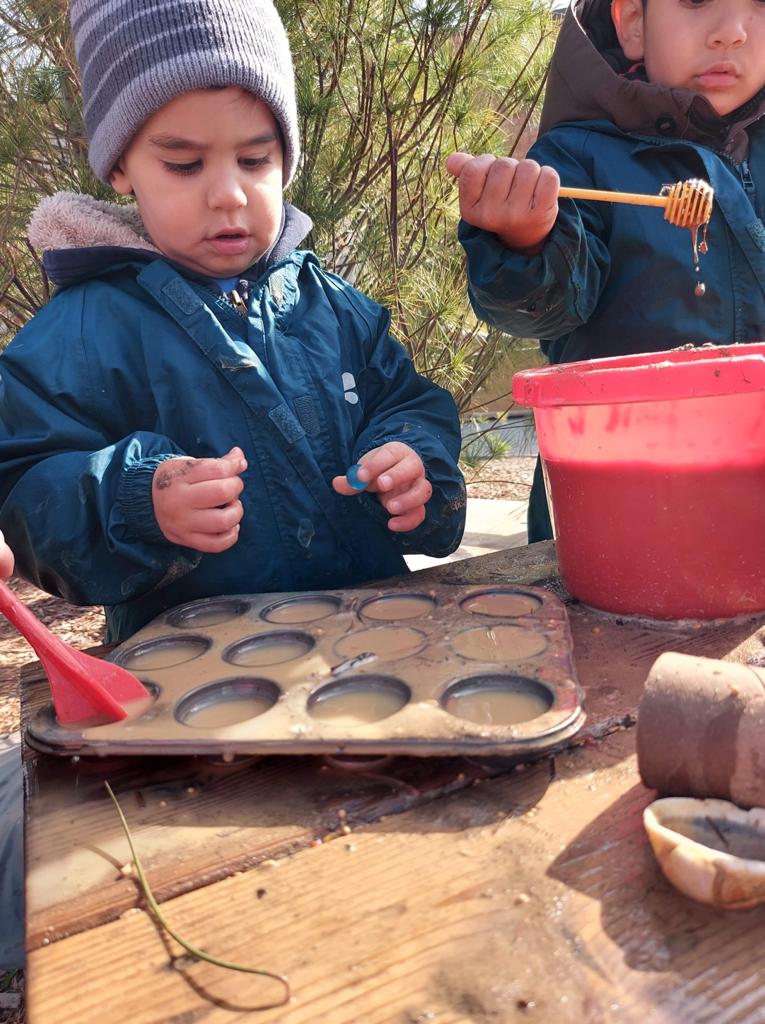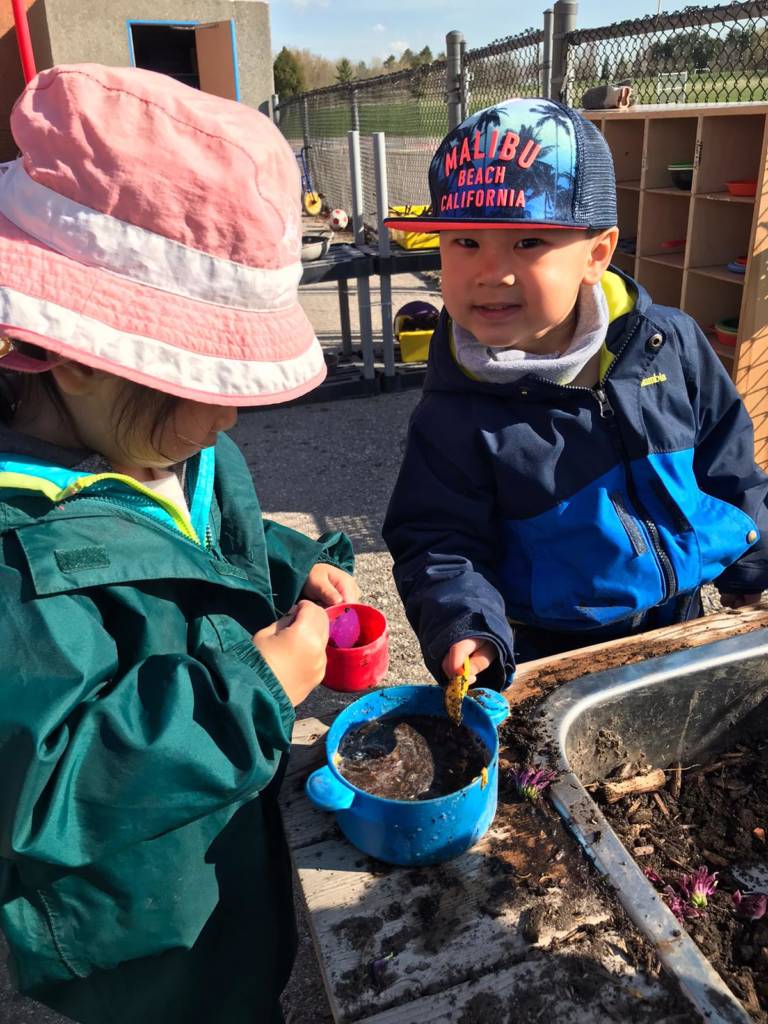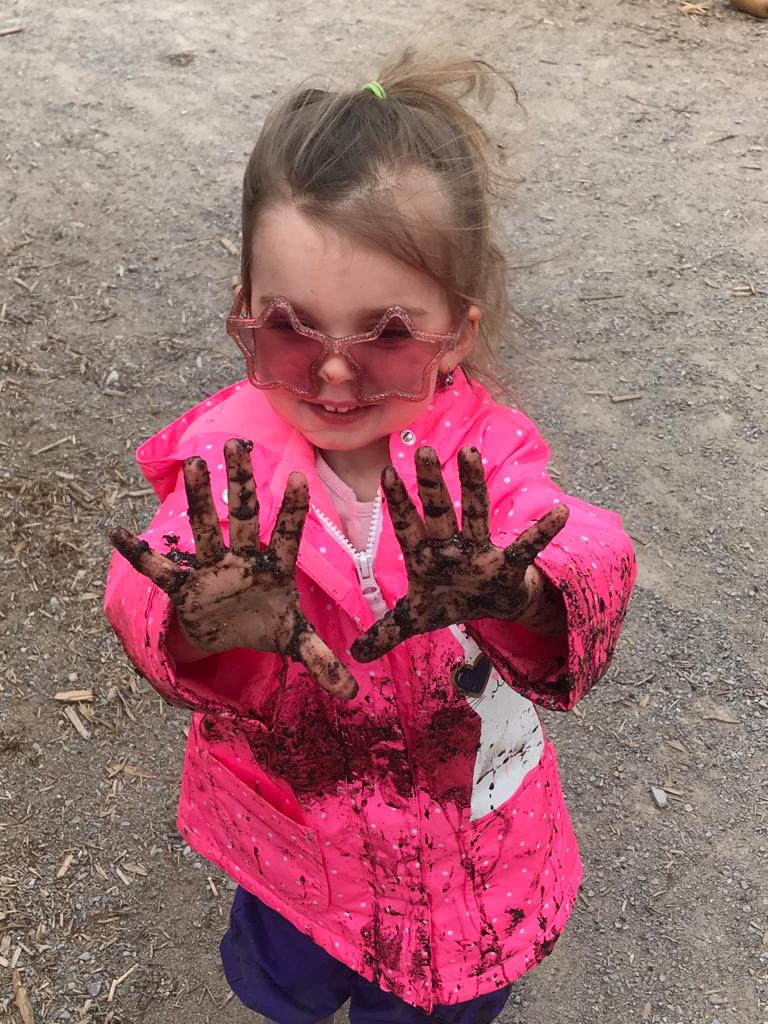We would like to thank all educators for their submissions to the mud kitchen challenge. lots of creativity, engagement, innovation, and knowledge was documented.
To ensure fairness, we where excited to have two childcare professionals from outside the organization judge the submissions based on the criteria including creative setup, sharing of mud play benefits, and overall connection to learning and growth. The judges commented it was an agonizing task to select the top three.
Judges
Marsha Walker – RECE, Early Years and Child Care Planner with Simcoe County District School Board
Tonya Millsap – RECE, Program Supervisor, Early Learning and Child Care Children and Community Services
1. Our Lady of Good Counsel – VIEW ENTRY
Feedback from our judges
- Creation of a new space with preschoolers that is outside of boundaries of ‘regular’ play space
- Language decisions in the benefit section really captured the essence and intelligent possibilities with mud play
- Traces of conversation among Children were included in documentation which brings a visibility to Children’s point of view and experience in their encounter
- Overall, the design choices in the actual documentation were engaging
2. Hewitt’s Creek – VIEW ENTRY
Feedback from our judges
- Co-creation of the space and furniture was enacted together with Children and Educators using actual/real tools alongside Children
- Foraging materials for the space was a shared experience with Children
- Dominant ‘green’ philosophy in that most materials were repurposed; creativity and innovation visible in the repurposing as well
- Our reading of the use of ‘real’ authentic tools in the building, alongside Children was valued in that Children are competent and deserve real experiences with real materials
- Transformation of a concrete space is a tall order, our point of view is that the transformation was profound yet held to a less is more value (i.e. not cluttered, purposeful decisions on materials)
3. Trillium Woods – VIEW ENTRY
Feedback from our judges
- Documentation offers traces of conversations among Children which brings a visibility to Children’s point of view and experience in their encounter
- Children were at the base and centre of the encounters documented (i.e. was not entirely re-interpreted or re-told by Educators from Educator point of view)
- Language decisions in the benefits section is holistic in that well-being and development are all mentioned; the language situates Children as protagonists of their own learning and experience (e.g. directors of their own play)
- Transformation of a concrete space
Congratulations to all our Educators who put forth their best efforts and all improved the quality of their mud kitchens and outdoor experiences.




